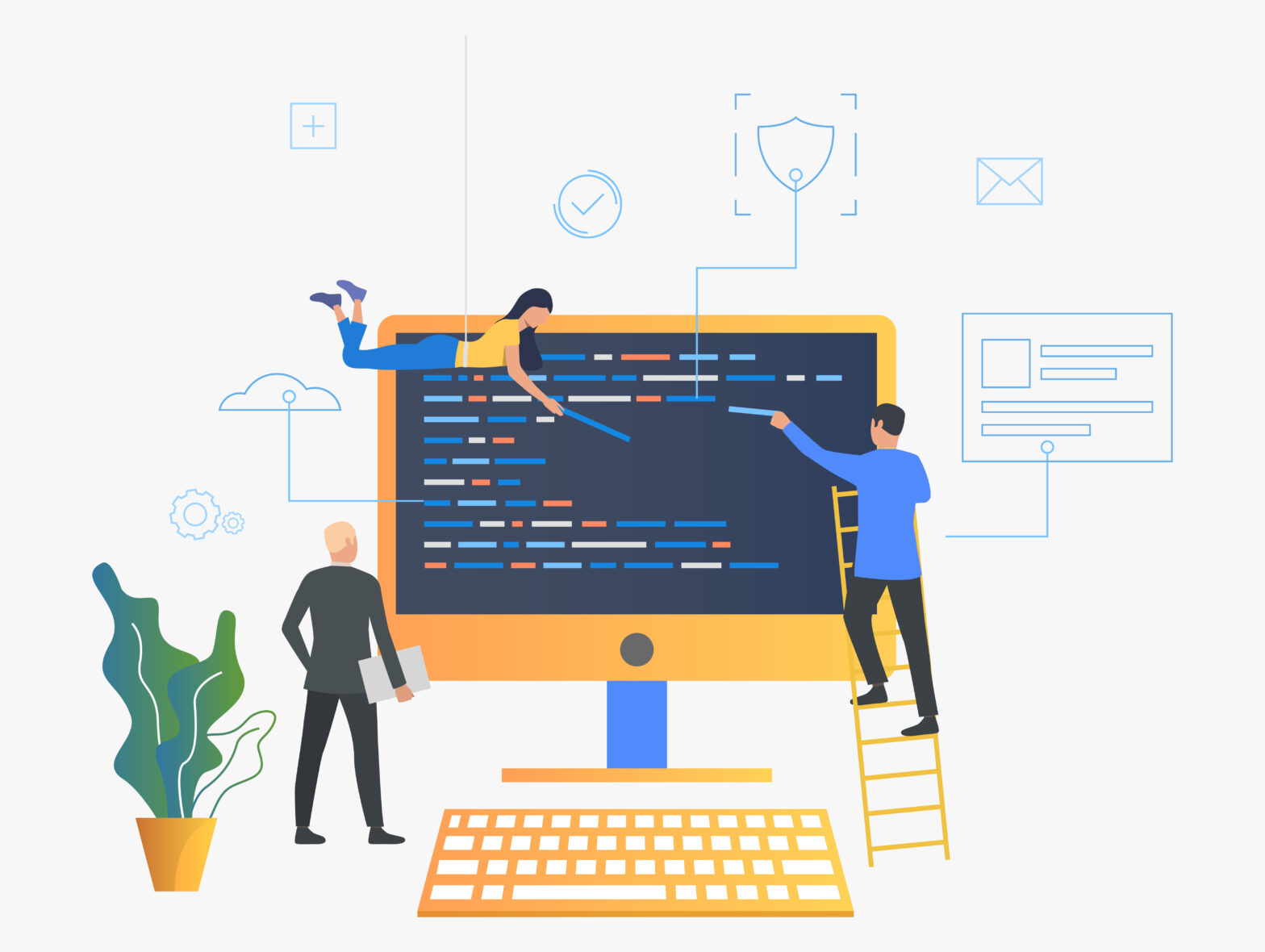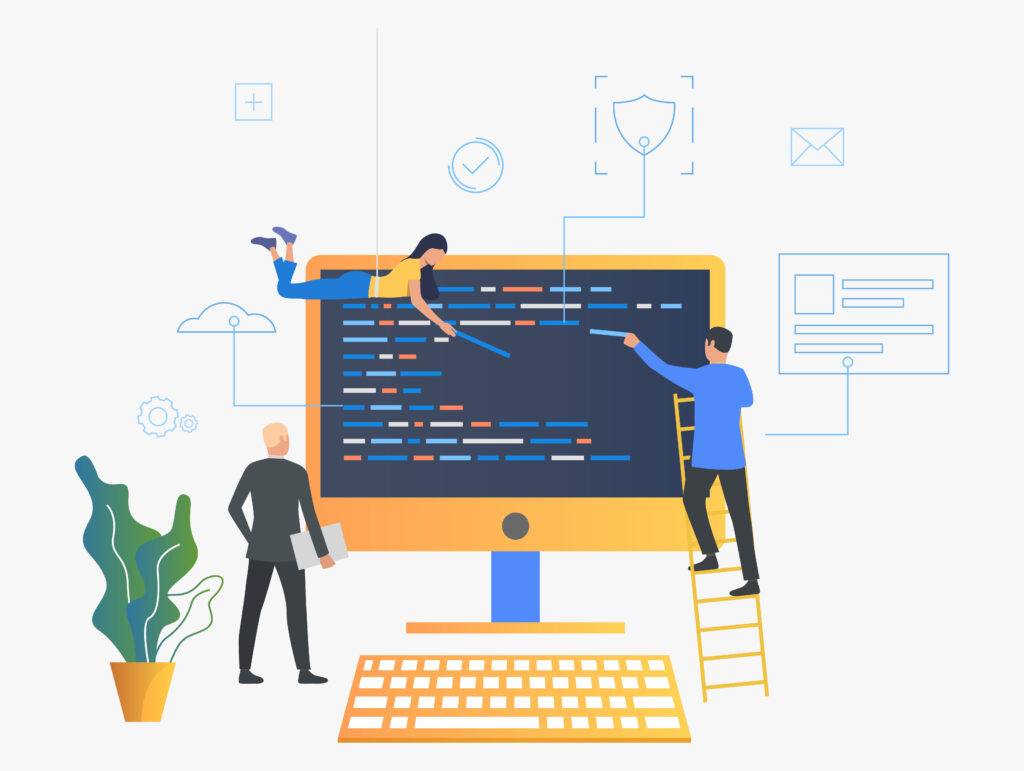Software Dev|What is dev in Software

Software Dev
Software development is the process of designing, creating, testing, and maintaining software applications. It involves a variety of activities, including requirements gathering, software design, coding, testing, debugging, deployment, and maintenance.
Software developers use programming languages like Java, Python, C++, and
many others to write code that can run on various platforms and devices. They also use various software development tools and frameworks to make the development process more efficient and effective.
The software development process typically involves collaboration
between developers, project managers, quality assurance testers,
and other stakeholders to ensure that the software meets the requirements and functions as intended. It is a complex and ever-evolving field that plays a critical role in today’s digital world.

What is Dev in Software?
“Dev” is short for “development” in the context of software development. It typically refers to the process of creating, designing, building, and testing software applications.
In the software development lifecycle, “dev” can refer to various stages of development, including:
Development: This is the stage where developers write code to create the software application.
Testing: This is the stage where developers test the software to ensure it meets the requirements and functions as intended.
Deployment: This is the stage where developers deploy the software to a production environment where users can access it.
Maintenance: This is the stage where developers maintain the software by fixing bugs, updating features, and addressing user feedback.
In general, “dev” is a common abbreviation used by developers,
project managers, and other stakeholders in the software development process to refer to any stage of development.
Software Dev Certifications
There are many certifications available for software development professionals,
and they can help individuals demonstrate their expertise and knowledge in specific areas of software development. Here are some examples of popular software development certifications:
Certified Software Development Professional (CSDP): This certification is offered
by the IEEE Computer Society and is designe to prove. a professional level of competence in software development.
Software Tester (CSTE): This certification is offered by the Quality
Assurance Institute is designed to demonstrate a professional level of competence in software testing.
Scrum Developer (CSD): This certification is offered by the Scrum
Alliance is to show a professional level of competence. in agile software development practices.
Oracle Certified Professional (OCP) Java SE 11 Developer: This certification is an offer by Oracle
and is to prove skills in Java programming language and platform technologies.
Microsoft Certified: Azure Developer Associate: This certification is offer
Microsoft and is to prove skill in developing solutions. on the Microsoft Azure cloud platform.
These are just a few examples, but there are many other certifications
available for software development professionals depending on their area of expertise and interest. It is important to research and choose a certification that aligns with your career goals and interests.
Kanban Software Dev
is a method that can be us in software development. to help teams manage and visualize their workflow. boards are a common tool used in the Kanban method. And they consist of a visual
representation of the team. workflow, with each step of the process represented by a column on the board.
software development typically involves the following steps:
Define the workflow: The team defines the steps involved
in their software development process and creates a Kanban board that represents these steps.
Create tasks: The team creates tasks that need to Complete
to move items through the workflow and these tasks. are represent as cards on the Kanban board.
Assign tasks: Team members pull tasks from the backlog and assign them to themselves or other team members.
Visualize progress: As tasks are complete, they are moving across. the Kanban board to represent their progress through the workflow.
Continuously improve: The team uses data from the Kanban
board to identify bottlenecks and areas for improvement in their software development process.
There are many software tools available to support Kanban software development, including Trello, Asana, Jira, and Kanbanize, among others. These tools provide digital Kanban boards that allow teams to manage their workflow, collaborate on tasks, and track progress.
Software Dev Memes
Software development memes are a popular way to express humorous and relatable aspects of the software development process. Here are some examples of popular software development memes:
“Works on my machine”: This meme pokes fun at the frustration
developers experience when their code works fine on their local machine but fails when deployed to a production environment.
“Programmer’s logic”: This meme highlights the illogical and unconventional solutions programmers sometimes come up with to solve problems.
“It’s not a bug, it’s a feature”: This meme is us to suggest that a
software issue is a desired feature of the product.
“Infinite loop? Just one more time”: This meme humorously depicts the
tendency of developers to keep testing a code block repeatedly, even if it’s causing an infinite loop.
“That feeling when your code finally works”: This meme is. us to express the
relief and satisfaction when a piece. of code finally works as intended after hours or even days of debugging.
Software development memes can be foun all over the internet. And they are often shared and appreciated by software development. professionals
who can relate to the humor and frustrations depicted in the memes.
Software Dev Salary
The salary of a software developer can vary depending on several factors, including location, experience, skill set, and industry. Here are some general salary ranges for software developers based on data from reputable sources:
Junior software developer: $50,000 to $70,000 per year
Mid-level software developer: $70,000 to $100,000 per year
Senior software developer: $100,000 to $150,000+ per year
It’s important to note that these are general salary ranges and can vary significantly depending on the factors mentioned above. For example, software developers working in major tech hubs like Silicon Valley or New York City may command higher salaries due to the higher cost of living in those areas. Similarly, developers with
Contact us

Pak Address:
Johar Town H Block lahore, Pakistan
amnakhank22@gmail.com

+92 316 5544991